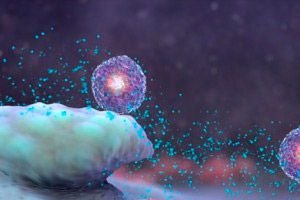
All iLive content is medically reviewed or fact checked to ensure as much factual accuracy as possible.
We have strict sourcing guidelines and only link to reputable media sites, academic research institutions and, whenever possible, medically peer reviewed studies. Note that the numbers in parentheses ([1], [2], etc.) are clickable links to these studies.
If you feel that any of our content is inaccurate, out-of-date, or otherwise questionable, please select it and press Ctrl + Enter.
Bacteria can trigger type I diabetes
Medical expert of the article
Last reviewed: 02.07.2025

At Cardiff University, specialists have found that one of the causes of type I diabetes may be bacteria, which "force" the immune system to work against the body and destroy the cells of the pancreas that produce insulin. In earlier studies, scientists found that a certain type of white blood cells (NKT lymphocytes) destroy cells that produce insulin, while such lymphocytes protect the body from various intracellular infections and tumors.
The new study aimed to establish the reasons for this cell behavior, for which NKT lymphocytes were extracted from the body of a volunteer with type 1 diabetes and analyzed.
According to Dr. David Cole, receptors on the surface of lymphocytes check the environment and send signals for further action. In the course of studying lymphocytes, scientists have found that sometimes they are affected by pathogenic bacteria, which change their behavior and “force” them to attack beta cells, thereby provoking the development of type 1 diabetes.
The lead author of the research project noted that NKT lymphocytes effectively protect our body from various infections, however, when these cells begin to “work” against the body, the most severe consequences are possible.
The scientists published the results of their study in one of the scientific publications. According to the research group itself, this study is the first to clearly show that bacteria can affect cells and change their behavior, but in addition, the discovery gives impetus to studying the mechanism of action of other autoimmune diseases. Professor Cole noted that scientists still have a lot of work to do before they can figure out the true causes of the development of type I diabetes. Today, it is known that environmental and hereditary factors can influence the development of the disease, but the latest study has added external factors to the list.
Type I diabetes develops mainly in children and adolescents, and in most cases the disease is not related to a certain diet. The causes of this type of diabetes have been little studied to date, and there is no specific treatment that would help cope with severe symptoms of the disease for a long time. But scientists hope that the new study will help to better understand the mechanism of development of this type of diabetes and develop an effective treatment method.
Diabetes mellitus leads to serious consequences, according to some data, millions of people around the world suffer from this disease. However, scientists predict an increase in the incidence of diabetes by 2025 at least twofold. Presumably, every 10 seconds in the world, diabetes mellitus is diagnosed in 2 new patients, which is about 7 million cases per year, about half of the cases are detected at the age of 40 to 60 years, more than half of the patients live in developing countries.
The most severe situation is observed in the Middle East, Australia, and the Caribbean countries, where 20% of patients are children (12 years and older).


 [
[